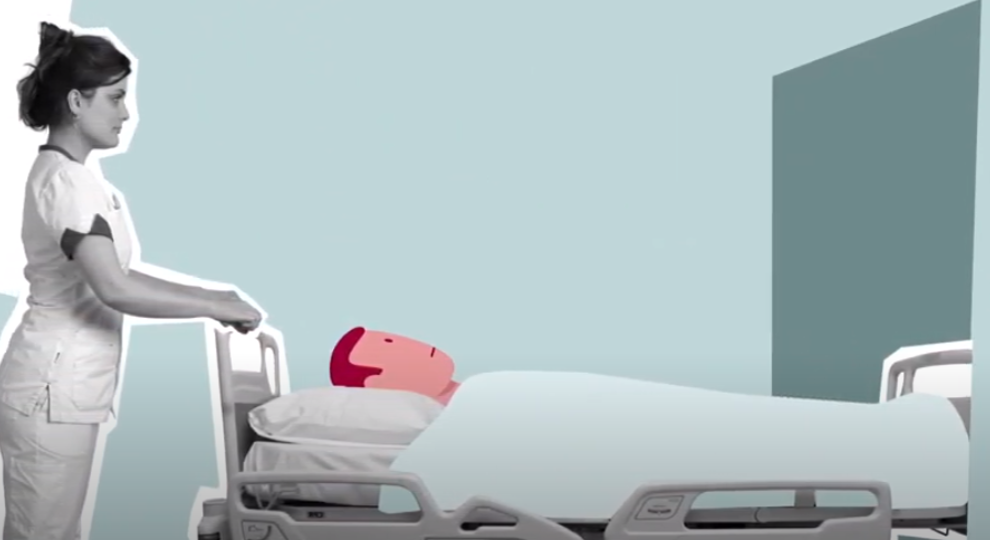Surgery for recurrent rectal cancer
Treatment for rectal cancer that has returned, recurrent rectal cancer, is often complex and requires a multidisciplinary approach involving a surgeon, gastroenterologist, and radiation therapist. In some cases, your treatment team will also involve a urologist and plastic surgeon.
Most people with recurrent rectal cancer will receive a combination of radiotherapy and chemotherapy, followed by an operation. During your surgery, we will remove the recurrence, frequently together with the surrounding organs. If the cancer has developed close to the anus, you will need a permanent colostomy. If it occurred further from the anus, you may only need a temporary colostomy.
More information
Surgery for recurrent rectal cancer - what to expect?
Your surgeon will surgically remove the tumor tissue together with all tissue and organs attached to it. This means that we will not just remove the affected part of your intestines, but also your bladder, sometimes together with the prostate, uterus, or ovaries. We may need to remove part of the pelvis.
The exact surgery you will have depends on the size and location of the recurring tumor. Most surgeries are major. Because a lot of tissue will be removed, your surgical wound will be large. Your plastic surgeon will cover the wound and craft a reconstruction.
The exact surgery you will need for your recurrent cancer will depend on your personal situation. Your physician will tell you more about your treatment.
Effectiveness
The treatment’s success rate will depend on the possibility to remove the recurrence in its entirety. Most treatments are curative in nature. In some cases we will opt for palliative treatment instead
Preoperative screening
Before your surgery, you will be invited to meet with your anesthesiologist at the outpatient clinic for a consultation and a brief examination to assess your overall shape and any potential particularities we will need to keep in mind. The consultation assistant will measure your heart rate and blood pressure and will inquire about your height and weight. If needed, we can take those measurements during the appointment.
This preoperative screening will take approximately 20 minutes and will form the base of your anesthesia. Your anesthesiologist will listen to your lungs and heart and inspect your mouth and throat in preparation of the breathing tube that will be placed during surgery. Your anesthesiologist will also ask you:
Before your surgery, you will be invited to meet with your anesthesiologist at the outpatient clinic for a consultation and a brief examination to assess your overall shape and any potential particularities we will need to keep in mind. The consultation assistant will measure your heart rate and blood pressure and will inquire about your height and weight. If needed, we can take those measurements during the appointment.
This preoperative screening will take approximately 20 minutes and will form the base of your anesthesia. Your anesthesiologist will listen to your lungs and heart and inspect your mouth and throat in preparation of the breathing tube that will be placed during surgery. Your anesthesiologist will also ask you:
- whether you have been under anesthesia before
- whether you have any other conditions
- whether you have taken cancer medicine before
- whether you have had radiation treatment before
- whether you have any allergies
- whether you smoke
- whether you drink alcohol
- what kind of medication you take
Please inform your anesthesiologist of the type of medication and dose you take, and how often you take it. Your physician may want to run more tests before your surgery, such as: electrocardiogram (ECG), lung x-rays, a lung function test, or a blood test.
General or local anesthesia
Before your surgery you will be given general anesthesia, local anesthesia, or a combination of the two. General anesthesia means that you will be completely unconscious during surgery, whereas local anesthesia means that a part of your body will be numb and motionless.
General anesthesia
General anesthesia completely sedates your body. You will be given a cocktail of sleeping medicine, pain killers, and sometimes a muscle relaxant through IV. You will be unconscious within 30 seconds. You will be ventilated during the entire process.
If you are having major surgery, we will place a respiration tube in your throat. For smaller surgeries, a small cap in the back of the throat will suffice. We will closely monitor your heart rate, blood pressure, breathing, and temperature through our monitoring devices.
Local anesthesia
If you are given local anesthesia, you will be conscious during your surgery. Local anesthetics are usually administered through an epidural in the spine, and will temporarily numb all body parts underneath. We may place a tube to give you IV pain medication during and after surgery.
Your anesthesiologist will keep a close eye on your blood pressure, heart rate, breathing, and temperature in order to adapt the anesthesia if needed.
Most people undergoing major surgery will be given a mixture of general and local anesthetics.
Side-effects and complications
Due to their complex nature, you may experience several complications. The most common types are anastomotic leakage, an abscess, or impaired wound healing.
After your surgery
You will be admitted for a period of 2 or 3 weeks on average for surgery for recurrent rectal cancer. This period will increase in case of complication or impaired wound healing.
You will have to come in for follow-up consultations and regular screenings with your ostomy specialist, clinical nurse specialist, and surgeon. The frequency of these consultations will depend on your tumor type and stage.
Depending on the results of the pathological tests of the removed tissue, you may need to come in for further treatment.
Fertility preservation
This treatment may negatively affect your fertility levels, which is why the Netherlands Cancer Institute, in collaboration with the Amsterdam UMC, location AMC and the LUMC, offers fertility preservation.

 nl
nl
 Nederlands (Nederland)
Nederlands (Nederland)
 English (United States)
English (United States)